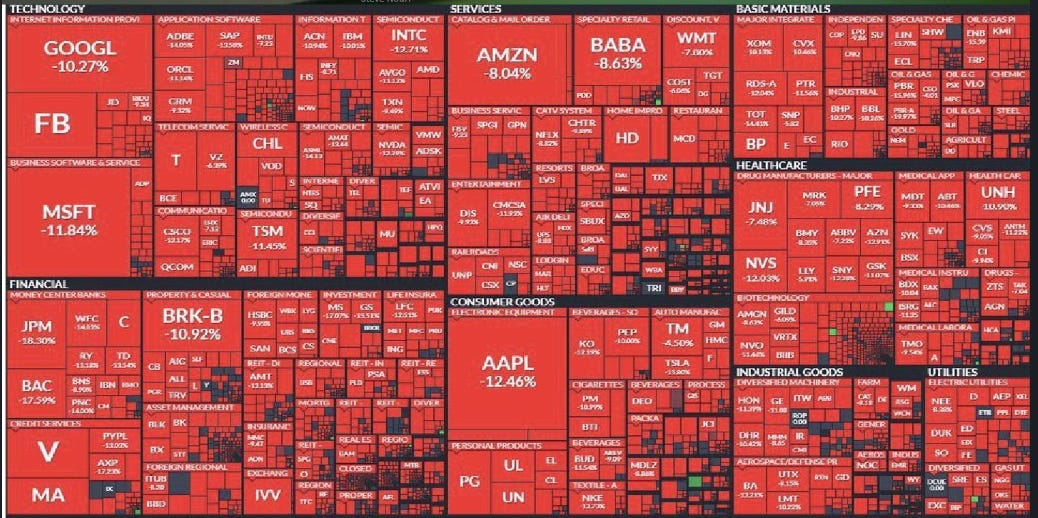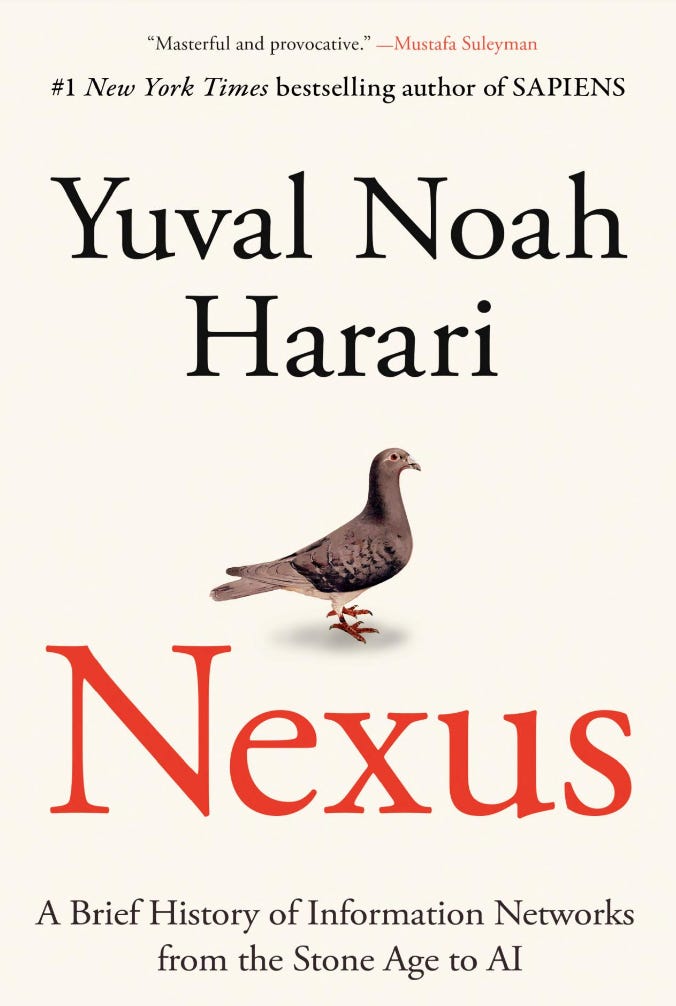- Yaro on AI and Tech Trends
- Posts
- 🤔Are We Thinking Exponentially Enough About Tech Progress?
🤔Are We Thinking Exponentially Enough About Tech Progress?
Plus: But, How can we think Exponentially?
Get in Front of 50k Tech Leaders: Grow With Us
Today, we take a quick dive into why we, humans, struggle to think exponentially. Deepseek’s arrival caught many by surprise, but it won’t be the last. As technology advances at an exponential pace, new companies will emerge, building mind-blowing innovations faster, cheaper, and with fewer resources. So, how can we shift our mindset to think exponentially? Let’s dive in!
Are We Thinking Exponentially Enough?
But, How can we think Exponentially?
🧰 AI Tools
📰 News and Trends.
Are We Thinking Exponentially Enough About Tech Progress?
The recent release of DeepSeek's R1 AI model has sent shockwaves through the tech industry and global markets. In just days, the model became the most downloaded application on the Apple Store, outpacing competitors and sparking widespread discussions about the accelerating pace of technological advancement. Unlike previous AI models that required billions of dollars to train, DeepSeek's R1 was developed for less than $6 million—an astonishingly low cost that underscores the exponential nature of technological progress.

The Markets on January 27th 2025.
The impact was immediate. Markets tumbled, losing approximately $2 trillion in value, Nvidia itself lost $500B+, as investors reacted emotionally to the perceived disruption. The open-source nature of DeepSeek's R1 has left many wondering whether the cost barriers that once defined AI development have been permanently dismantled. The most interesting aspect that this event highlights is the lack of understanding that we humans have for exponential growth and exponential thinking over all. And yes, OpenAI says it has evidence China’s DeepSeek used its model to train competitor, even it its true, the exponential growth cant be ignored.
We are still attempting to guess what is coming or decipher the future according to what our brains understand of the present and past advacements speeds. In a matter of days, perhaps, OpenAI will relase a new model that surpasses DeepSekk R1, Demis Hassabis, Google’s Deepmind CEO said new processors — known as “light chips” — are in the works that could make it more cost-effective to run the models. Models will continue to get faster, better, and cheaper to create. We may live in a world where anyone with an internet connection and a device could potentially create a very efficient AI model for personal or commercial use for hundreds of dollars. According to Cathie Wood the cots of AI training has been dropping at ~75% per year, the cost of inference, which is more competitive in todays landscape, is dropping at around 85% per year.
Hassabis said Google’s approach is unique in that it is building every component of the AI technology stack on its own. “We’re probably the only company that goes from the bare metal, the chips to the data centers,” he said. But Google will very soon not be the only one with this type of vertical stack.
Another interesting point to highlight here is that this development comes amidst ongoing U.S. efforts to regulate and force the sale of TikTok’s American operations, citing national security and data privacy concerns. While companies like Oracle and Microsoft vie for ownership of TikTok’s U.S. version, alternative Chinese apps like DeepSeek and others, including Lemonade, are emerging globally. These new platforms also swallow large amounts of sensitive data from its users regardless of their geographic location and will do so faster as their developers now know that they may be regulated out of certain geographic locations. This highlights the unstoppable nature of global innovation regardless of geographic or political barriers.
This raises questions about energy demands, a concern that has driven investments in technologies like nuclear fusion and data centers. However, as AI systems grow more efficient, the need for vast amounts of energy could diminish, paving the way for more sustainable development.
This moment serves as a reminder: Are we thinking exponentially enough? Innovation is not linear—it accelerates. Emotional reactions, like yesterday’s market crash, often fail to account for the rapid advancements that continually reshape the landscape. Companies like Google, Microsoft, and Meta will inevitably respond with breakthroughs of their own, and new models will surpass today’s disruptions.
Instead of reacting emotionally, we need to ask better, more exponential questions. How can we harness these advancements? How can we prepare for the broader societal implications of cheaper, faster, and more efficient technology? And most importantly, how do we stay ahead in an era where innovation has no borders?
Let’s focus on what’s to come, not just what’s in front of us. The future will arrive faster than we expect. Looking forward to read your comments.
Hire an AI BDR to Automate Your LinkedIn Outreach
Sales reps are wasting time on manual LinkedIn outreach. Our AI BDR Ava fully automates personalized LinkedIn outreach using your team’s profiles—getting you leads on autopilot.
She operates within the Artisan platform, which consolidates every tool you need for outbound:
300M+ High-Quality B2B Prospects
Automated Lead Enrichment With 10+ Data Sources Included
Full Email Deliverability Management
Personalization Waterfall using LinkedIn, Twitter, Web Scraping & More
Our Partners:
RemoteBase - Hire the top 1% of tech talent in the world. We have a thorough multi-step vetting process, that gives you a strong internal community of Front-End, Back-End, Full-Stack, and Dev-Ops engineers. Our clients are matched with the required engineering teams within 24 hours.
OpenVC University - Jumpstart your AI career in 100 days with OpenCV University’s AI Challenge – master AI, Computer Vision, and Deep Learning with a 35% discount!
FRENZ Brainband by Earable - Silence your thoughts and drift into a deeper sleep. —AI-powered, scientifically-backed sleep tech transforming restless nights into restful slumber. Exclusive savings with code 'celis'!*
But, How can we think Exponentially?
Key Mindset Shifts
Embrace Exponential Growth: Small changes compound into massive shifts.
Stay Ahead of Tech Trends: Follow AI, biotech, and digitalization.
Challenge Linear Thinking: Ask, “What happens when this doubles every year?”
Focus on Scalability: Look for automation, network effects, and digital leverage.
Anticipate Disruption: Identify inefficiencies and rapid cost reductions.
Use Data & Experiment: Iterate quickly with predictive analytics and rapid testing.
Strategies
Moonshot Thinking – Aim for 10x improvements, not incremental gains.
First Principles – Break problems down and rebuild innovative solutions.
Scenario Planning – Map 5-, 10-, and 20-year tech growth trajectories.
Leverage Convergence – Explore how different industries intersect.
Top Resources
Books: Exponential Organizations (Salim Ismail), Bold (Peter Diamandis), The Future is Faster Than You Think (Diamandis/Kotler).
Courses: Singularity University, Coursera (Disruptive Innovation).
Communities: XPRIZE, Exponential View (Azeem Azhar), Future Crunch.
Quick Exercises
Trend Mapping: Predict intersections of emerging tech.
Reverse Engineering: Study how Tesla, Amazon, and SpaceX scaled exponentially.
Rapid Experimentation: Test bold ideas and pivot fast.
Shift from thinking step-by-step to leaps and bounds.
📰 AI News and Trends
OpenAI's ChatGPT-Gov is a tailored version of ChatGPT for government agencies. It ensures security, compliance, and efficiency in public sector applications (
Perplexity AI revises Tiktok merger proposal that could give the U.S. government a 50% stake (CNBC)
Why Seagate and Western Digital Are Sleeper AI Picks (TheInformation)
Hugging Face has released Open-R1, a fully open reproduction of DeepSeek-R1.
Mark Zuckerberg predicts AI will replace mid-level engineers this year (2025), allowing humans to focus on creativity (Forbes)
🌐 Other Tech news
Boom Supersonic’s XB-1 aircraft broke the sound barrier during three test runs, a step toward the possible return of supersonic commercial flights (NS)
Mice with two dads have been created using CRISPR (MIT)
X is partnering with Visa on its upcoming person-to-person payment feature called X Money (TC)
Spotify Paid Out $10 Billion to the Music Industry in 2024 — $1 Billion More Than Last Year — and $60 Billion Total (TheVerge)\
Apple Works With SpaceX to Support Starlink on iPhones (Bloomberg)
🧰 AI Tools
Download our list of 750+ Tools free here.
What I am reading?

Nexus by Yuval Noah Harari examines the interconnectedness of technology, politics, and society, delving into how these dynamics shape the future. It challenges us to rethink our approach to progress and its ethical implications.


Reply